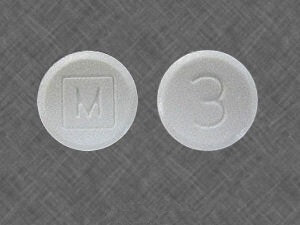Category
- Buy Adderall Online
- Buy Adipex Online
- Buy Alprazolam Online
- Buy Ambien Online
- Buy Ativan Online
- Buy Carisoprodol Online
- Buy Clonazepam Online
- Buy Codeine Online
- Buy Darvocet Online
- Buy Demerol Online
- Buy Diazepam Online
- Buy Dilaudid Online
- Buy Fioricet Online
- Buy Gabapentin Online
- Buy Hydrocodone Online
- Buy Hydromorphone Online
- Buy Klonopin Online
- Buy Lexapro Online
- Buy Lorazepam Online
- Buy Lorcet Online
- Buy Lortab Online
- Buy Meridia Online
- Buy Methadone Online
- Buy Modafinil Online
- Buy Norco Online
- Buy Opana ER Online
- Buy Oxycodone Online
- Buy Oxycontin Online
- Buy Percocet Online
- Buy Phentermine Online
- Buy Roxicodone Online
- Buy Soma Online
- Buy Suboxone Online
- Buy Subutex Online
- Buy Tapentadol Online
- Buy Tramadol Online
- Buy Valium Online
- Buy Viagra Online
- Buy Vicodin Online
- Buy Xanax Online
- Buy Zolpidem Online

Deals & Discounts
Use Coupon Code
SAVE10
Category: Buy Codeine Online
Showing all 4 results
Codeine is an opioid and prodrug of morphine used to treat coughing, pain, and diarrhea. Codeine is typically used to treat mild to moderate degrees of pain. You can buy Codeine online from us for pain relief. Let us learn more about Codeine.
What is Codeine?
Codeine belongs to a classification of drugs called narcotic (opiate) analgesics and antitussives. When you use Codeine as a pain killer, it changes how the nervous system and brain respond to pain. When Codeine is used to suppress coughing, it reduces the activity in the part of the brain that causes coughing. Codeine is often combined with other medicines, like acetaminophen ( Codeine with Capital, Codeine with Tylenol), promethazine, Carisoprodol, and aspirin in prescription pain medicines.
Codeine is also an ingredient in many OTC (over-the-counter) cold and cough medications. Buy Codeine online without a prescription from us because we are the most trusted pharmacy website in this country.
What are the medical uses of Codeine?
Pain
People use Codeine to treat mild to the moderate magnitude of pain. People commonly use Codeine to treat back pain, post-surgical dental pain, migraine, tension headaches, and pain from osteoarthritis. However, the FDA (Food and drugs administration ) lists age below 12 years as a contradiction to use.
Diarrhea
People use Codeine to treat acute diarrhea and diarrhea-predominant irritable bowel syndrome. Codeine works by slowing down the movement of the gut, which in turn decreases the speed at which the contents pass through. Food stays in the gastrointestinal tract for longer, permitting more water to be absorbed back into the body. This leads to firmer stools that are passed less frequently.
Cough
People use Codeine as a cough suppressant. Some tentative evidence says Codeine can relieve a chronic cough in adults. You may buy Codeine online through overnight delivery from us because we deliver your medicines overnight at your doorstep.
Formulations
Codeine is marketed as a single-ingredient drug as well as in combination preparations with ibuprofen (as Nurofen Plus); with aspirin (as co-codaprin); or with paracetamol (as co-codamol: for example, in brands Panadeine, Paracord, and the Tylenol-with-Codeine series, including Tylenol 1, 2, 3, and 4). These combinations provide even more pain relief than either agent alone.
Codeine is also marketed in cough syrups, having zero to six other active ingredients and a linctus (like Paveral) for all of the uses for which Codeine is indicated. The injectable form of this drug is available for intramuscular or subcutaneous injection only; intravenous injection is contraindicated because this may result in nonimmune mast-cell degranulation and anaphylactoid reaction. Codeine is also usually marketed in products containing Codeine with other muscle relaxers or pain relievers, as well as Codeine mixed with naproxen, diclofenac, phenacetin, indomethacin, and others, as well as more complex mixtures.
Warnings and precautions
You must not take Codeine if you have frequent asthma attacks or hyperventilation. Also, using recreational drugs or drinking alcohol during this medication increases your risk of experiencing severe, life-threatening side effects. Do not consume alcohol, take nonprescription or prescription medications containing alcohol, or use recreational drugs during treatment with Codeine. Furthermore, you must avoid taking Codeine during your pregnancy because regular use of Codeine during pregnancy can cause dangerous withdrawal symptoms in the baby.
Taking particular medications during your medication with Codeine can increase the risk that you will experience sedation or breathing problems. Inform the pharmacist or doctor if you are taking or plan to take any of these medications: certain antifungal medications, benzodiazepines, certain antibiotics, medicines for mental illness, muscle relaxants, sleeping pills, sedatives, or tranquilizers.
What is the recommended dosage of Codeine?
For adults
Dosage forms and strengths tablet: 15 mg 30 mg 60 mg Pain 15 to 60 milligrams PO every four to six hours; should not exceed 360 milligrams per day in naive patients.
Dosing consideration- Patients previously exposed to opioids can require higher initial doses. Cough 8.5 to 30 milligrams PO every four to six hours.
For pediatric population
Dosage forms and strengths tablet: 15 mg 30 mg 60 mg Oral solution: 30 mg/ml
The Food and drugs administration has recommended that children below 12 years and all pediatric patients undergoing adenoidectomy or tonsillectomy should not consume Codeine.
Pain- above 12 years: 0.5 to 1 mg/kg PO every four to six hours; should not exceed 60 mg per dose; titrate dose to pain relief; minimum adequate amount for the shortest period. Alternatively, 15 to 60 milligrams PO every four to six hours; should not exceed 360 milligrams per day in naive patients.
Cough – Codeine is not recommended for below 12 years. Above 12 years: 8.5 to 30 milligrams PO every four to six hours; titrate dose to pain relief; use the minimum effective amount for the shortest period.
Side effects of Codeine
Common side effects due to the use of Codeine are constipation and drowsiness. Less common are nausea, itching, dry mouth, vomiting, orthostatic hypertension, miosis, euphoria, dysphoria, and urinary retention. Rare severe effects are seizure, respiratory depression, anaphylaxis, and acute pancreatitis. As with all opioids, long-term effects may vary but include apathy, memory loss, and diminished libido. Some people can experience allergic reactions to Codeine, like rashes and skin swelling.




